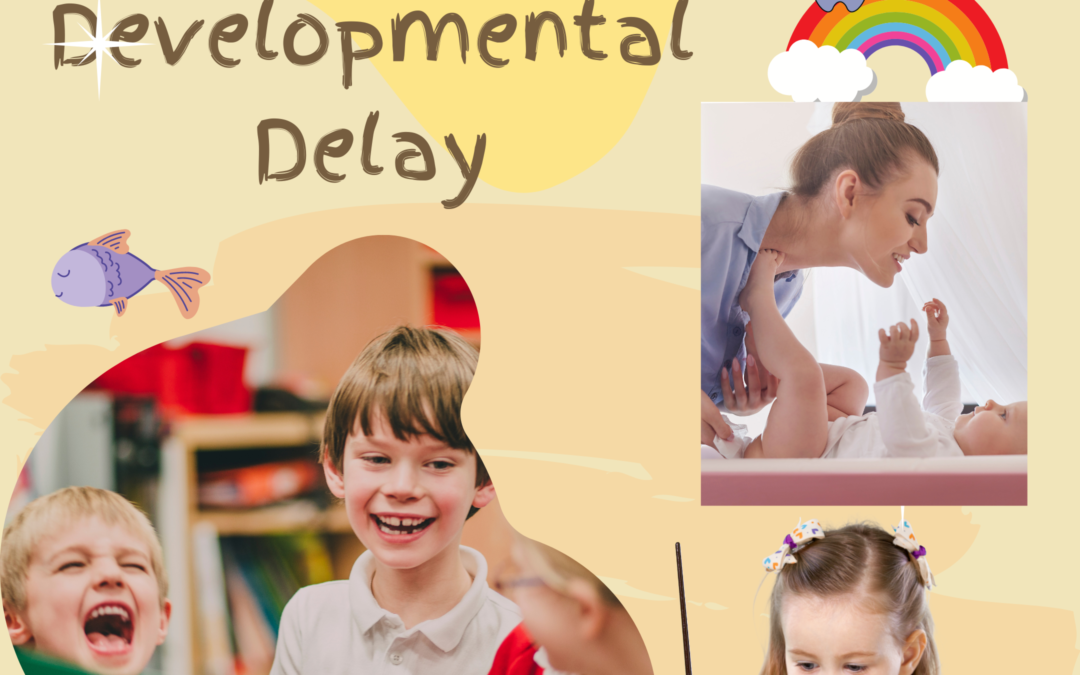Developmental delays in children can impact various aspects of their growth and abilities. These delays can affect their physical, cognitive, communication, social, emotional, or behavioral skills. Pediatric specialists at Hassenfeld Children’s Hospital at NYU Langone have identified several types of developmental delays that children may experience. It is important to note that these delays can manifest in multiple areas simultaneously, leading to what is known as global developmental delay. While some developmental delays have identifiable causes, many children have delays without a clear reason. In this article, we will explore the different types of developmental delays and their potential causes.
Cognitive Delays
Cognitive delays refer to impairments in a child’s intellectual functioning, which can interfere with their awareness and cause learning difficulties. These delays are often noticeable once a child starts school. Children with cognitive delays may also experience challenges in communication and social interaction. Various factors can contribute to cognitive delays, including brain injuries caused by infections like meningitis, which can lead to swelling in the brain (known as encephalitis). Other possible causes include shaken baby syndrome, seizure disorders, and chromosomal disorders such as Down syndrome. However, in many cases, the exact cause of cognitive delays remains unknown.
Motor Delays

Motor delays affect a child’s ability to coordinate their large muscle groups (gross motor skills) and smaller muscles (fine motor skills). Infants with gross motor delays may struggle with rolling over or crawling, while older children might appear clumsy or have difficulty with tasks like walking up and down stairs. Fine motor delays can manifest as difficulty holding small objects or performing tasks like tying shoes or brushing teeth. Genetic conditions like achondroplasia, which causes limb shortening, and muscle-related disorders such as cerebral palsy or muscular dystrophy can contribute to motor delays. Structural problems, such as limb length discrepancies, can also be a factor.
Social, Emotional, and Behavioral Delays
Children with developmental delays often experience challenges in social, emotional, and behavioral domains. This includes children with neurobehavioral disorders like autism spectrum disorder and attention deficit hyperactivity disorder (ADHD). Due to differences in brain development, these children may process information and react differently to their environment compared to their peers. These delays can affect a child’s learning abilities, communication skills, and interactions with others. Social and emotional difficulties are common among children with developmental delays, including issues with understanding social cues, initiating communication, and engaging in two-way conversations. Additionally, they may struggle with frustration and have difficulty coping with change. Prolonged tantrums and delayed calming down can indicate the need for additional support in modifying their environment or learning coping skills.
Speech Delays
Speech delays encompass various types of language disorders that affect a child’s ability to understand and express words and concepts. Receptive language disorders make it challenging for children to comprehend colors, body parts, or shapes, while expressive language disorders result in a reduced vocabulary and difficulty constructing complex sentences. Some children may experience a combination of receptive and expressive delays. Speech production disorders, on the other hand, occur when oral motor problems, such as weakness in the mouth muscles or difficulties with tongue and jaw movements, hinder speech production. Physiological causes like brain damage, genetic syndromes, or hearing loss can contribute to speech delays, as can environmental factors like a lack of stimulation. However, in many cases, the exact cause of a child’s speech delay remains unknown.
Identifying and Addressing Developmental Delays

Recognizing developmental delays is crucial for early intervention and appropriate support. Parents and caregivers play a vital role in observing their child’s development and seeking professional guidance if delays are suspected. Pediatricians and developmental specialists can conduct comprehensive assessments to identify the specific areas of delay and formulate targeted interventions. Early intervention programs, therapy, and individualized education plans can help children with developmental delays reach their full potential.
Conclusion
Understanding the different types of developmental delays in children is essential for parents, caregivers, and healthcare professionals. Cognitive, motor, social, emotional, and speech delays can significantly impact a child’s overall development and well-being. While some causes of these delays can be identified, many cases remain unknown. Timely recognition and intervention are key to supporting children with developmental delays and helping them thrive. By working closely with healthcare providers and implementing appropriate strategies, children with developmental delays can overcome challenges and reach their developmental milestones.
